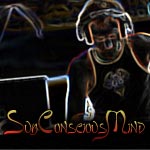| Author
|
An insight in2 melodies and psy
|
bukboy
Hyperboreans

Started Topics :
40
Posts :
803
Posted : Sep 18, 2006 08:53
|
Ok dudes. Thanks for all the gr8 suggestions. Im sure they will come in handy.
On the whole now I feel much more confident about writing melodies and harmonies, and the song writing process is a lot quicker.
Djzed: I find that a LOT of trance uses the (down 5 up 5 (like scorpion frog)) modulation u spoke about. Another way 2 look at it is that they switched to phrygian mode by using a flat 2.  just by changing 1 note. This modulation has the effect (if u keep the same root) of seeming more tense (root in mind) coz its not a tonic, and adding energy at a sction of song. A very useful device exploited often.(If u knew this I just meant it so that other guys would know as well:-)) just by changing 1 note. This modulation has the effect (if u keep the same root) of seeming more tense (root in mind) coz its not a tonic, and adding energy at a sction of song. A very useful device exploited often.(If u knew this I just meant it so that other guys would know as well:-))
Colin: fair point, In the end I think it might just be a question of convention. I do however know that u have a lot more experience than I so I will investigate ur suggestions. Thanks |

|
|
djzed

Started Topics :
3
Posts :
48
Posted : Sep 18, 2006 14:41
|
Quote:
|
On 2006-09-18 08:53, bukboy wrote:
I find that a LOT of trance uses the (down 5 up 5 (like scorpion frog)) modulation u spoke about.
|
|
I haven't come by many other artists who use key changes in psytrance. I'm curious to know who/which tracks you are talking about? (and I'm not talking about moving the bass to a different note because it's a different chord, I'm talking about a whole section where the tonic note different to what it was originally) |

|
|
cyclix
IsraTrance Full Member
Started Topics :
51
Posts :
46
Posted : Sep 18, 2006 15:36
|
hi
i get the part of chainging the keys and stuff bud i dont know what you are talking about those G prygian things?
is it something like Gmajor = Gprygian or don't i get the hole story?
becuse i have never played an instrument before so dont really know alot about chord's.
so if somebody can explain to me what things i choud really learn...that woud be wunderfull
i have a book here where al the chords are showed to me to play on the piano bud you have like 5diferent chords in one root key
for example the books schows me for
the note E - 10 diferent chords i think?
(E-Em*E7*E°*E+*Em7*Em7-5*Emaj7*E7+5*and Em(maj7)
so i dont really know witch ones i schould use?
thanx ....
|

|
|
bukboy
Hyperboreans

Started Topics :
40
Posts :
803
Posted : Sep 18, 2006 16:15
|
djzed: in beatnik - "pass the parcel" 4 one. I see it all over the place man. chromatome monster faucet.
whenever people use a flat 2nd, its almost ubiquitous.

cyclix: C phrygian is EFGABCDE starting at E with root E. |

|
|
martyn
IsraTrance Junior Member

Started Topics :
40
Posts :
389
Posted : Sep 18, 2006 22:39
|
|
subconsciousmind
SCM

Started Topics :
37
Posts :
1033
Posted : Sep 18, 2006 23:09
|
Wow, I'm honestly impressed of that knowledge here...
I actually just play arount till it feels good. I use different notes on the bass and everywhere...  In the end my music is very melodic. In the end my music is very melodic.
But I guess a little knowledge about that stuff could open new ways.. 
        Most of my music for you to download at: Most of my music for you to download at:
http://www.subconsciousmind.ch |

|
|
psylevation
IsraTrance Full Member

Started Topics :
52
Posts :
841
Posted : Sep 19, 2006 01:06
|
Quote:
|
On 2006-09-18 23:09, subconsciousmind wrote:
But I guess a little knowledge about that stuff could open new ways.. 
|
|
Definitely! I started studying some theory, not just basic theory but a different way of looking at it through a purpose oriented way. It's really made a difference. I still have alot to learn with it, though now I'll pick a chord that works with a sound i'm playing with and make that my root chord, then make a nice chord progression that gives a feeling that I like. Then i'll base at least one section of the song around that chord progression.
So far I know of the I, IV, V thing. Though that is just for a 3 chord song. Moving into a four chord song you could use, I, II or III, IV, and V. The book I got to learn this teaches chord progressions by the feeling that they induce. Which is why I think i've finally been able to sit down and happily work on music theory.
I have so much new found faith in theory that I've bought a new keyboard because 25 keys just isn't enough. 2 thumbs up for chord progressions  |

|
|
djzed

Started Topics :
3
Posts :
48
Posted : Sep 19, 2006 06:18
|
Quote:
|
On 2006-09-18 15:36, cyclix wrote:
hi
i get the part of chainging the keys and stuff bud i dont know what you are talking about those G prygian things?
is it something like Gmajor = Gprygian or don't i get the hole story?
becuse i have never played an instrument before so dont really know alot about chord's.
so if somebody can explain to me what things i choud really learn...that woud be wunderfull
i have a book here where al the chords are showed to me to play on the piano bud you have like 5diferent chords in one root key
for example the books schows me for
the note E - 10 diferent chords i think?
(E-Em*E7*E°*E+*Em7*Em7-5*Emaj7*E7+5*and Em(maj7)
so i dont really know witch ones i schould use?
thanx ....
|
|
If you're new to music theory, it's probably a good idea to not move on to modes until you get the basics down.
Looking at chords like "(E-Em*E7*E°*E+*Em7*Em7-5*Emaj7*E7+5*and Em(maj7)" is not the best way to understand them. You need to look at chords in terms of how they relate to each other and how they relate to the tonic.
To give an analogy, think about a chord sequence like leaving your house to go for a stroll.
You'll start at your house, which is the tonic chord (I). You'll then move on to visit some other places, but you'll eventually return back to your home, when the sequence can start again. A chord sequence is a short return-journey through different places in the tonal landscape.
Just like in a journey, if you venture too far from your home, you might forget where your home is. That's why using in-key chords is a safe bet. Think of the in-key chords (I, II, III, IV, V, VI, VII) as places really close by - just around the corner. They will be smooth flowing, and the listener will always have a feeling of where the tonic is, making it strongly grounded.
Now this is not to say you can't use out-of-key chords. But look at it like this - can you imagine leaving your home, going down to the milk bar and the next second being in a different country? You just need to know what types of chord transitions sound good and which ones don't, and make sure the listener never loses that "sense" of where the tonic is.
This is how I look at chords, and it's a model that works very well for me.
The important thing is you could read 1001 books on music theory and chords, but as I said before, it's something you really need to get a feel for yourself. Sit down in front of a piano, or pick up a guitar, and play around with chords and get to know what types of sequences you like. Learn to play all your favourite songs.
Just a quick tip for smooth chord transitions: moving up a fourth or down a fifth.
E.g.
I -> IV
II -> V
III -> VI
V -> I |

|
|
piXan
IsraTrance Full Member

Started Topics :
107
Posts :
807
Posted : Sep 19, 2006 08:44
|
|
jivamukti
IsraTrance Junior Member

Started Topics :
21
Posts :
342
Posted : Sep 19, 2006 21:27
|
Quote:
|
On 2006-09-15 13:20, djzed wrote:
But what I've found is that you can have a moving chord structure in your music even though you keep the bass on that same tonic note. This essentially the same as a "drone" (steady, constantly reiterated note) and is actually something that has been used in almost all styles of music around the world in history (tribal music, medieval, baroque, classical, jazz, etc).
|
|
I've never heard it called "drone". As far as I know it's "pedal point" or "pedal".
        When rain dries, clouds form. When rain dries, clouds form.
When clouds moisten, rain forms. |

|
|
djzed

Started Topics :
3
Posts :
48
Posted : Sep 20, 2006 12:44
|
Quote:
|
On 2006-09-19 21:27, jivamukti wrote:
I've never heard it called "drone". As far as I know it's "pedal point" or "pedal".
|
|
same thing |

|
|
bukboy
Hyperboreans

Started Topics :
40
Posts :
803
Posted : Sep 20, 2006 14:58
|
|
Dj zed or Colin: can u guys offer any advice on complexity of chord movements? vs intended emotion or section of track? |

|
|
djzed

Started Topics :
3
Posts :
48
Posted : Sep 21, 2006 04:37
|
Quote:
|
On 2006-09-20 14:58, bukboy wrote:
Dj zed or Colin: can u guys offer any advice on complexity of chord movements? vs intended emotion or section of track?
|
|
could u be more specific? |

|
|
bukboy
Hyperboreans

Started Topics :
40
Posts :
803
Posted : Sep 21, 2006 09:02
|
Knowing the correct question makes the answer obvious. so If I knew  I probably wouldnt ask. I probably wouldnt ask.
My question has an aspect of what chord motions make us feel what emotions.
An aspect of how does the motion speed affect the emotion of a piece.
An aspect of what kind of cadence is appropriate 2 an intended emotion.
Movies these days seem 2 b written with a score that complements the intended message, where do the composers learn this stuff.How 2 blend in instead of being overpowering, how 2 carry the listener with the story, how to contrast on surprise or extend an emotion.
I dont know. All these things at once.
Have u got any ideas on where I could find this stuff out. |

|
|
djzed

Started Topics :
3
Posts :
48
Posted : Sep 21, 2006 13:06
|
The only thing I can tell you is based on how I developed an understanding of this stuff. My best advice is:
1) Learn piano. It's probably the easiest way the study musical theory because it's very visual - u have all the notes right in front of you
2) If there is a piece of music that you really like and you want to know how they evoke that emotion, whether it be a psy track, classical piece, or movie score, learn to play it on the piano. Figure it out by ear or go to a music shop and by the score if you need to.
When you play it, don't just blindly read the notes, you need to analyze the piece with your theory knowledge. See what's really going on. See what types of chord movements are happening.
As you do this more and more you will see patterns emerge. You'll start to figure out exactly what the composer is doing to get that sound.
I'm at a point where I can listen to a piece of music and figure out the basic chord structure just by listening to it (not always though!). Developing this intuition takes years. I've been playing piano for 12 years so that's how long it's taken me.
But trust me it's worth it. Once you can see the matrix of music things like melody, harmony, chords, structure, basslines will become very natural. You can then focus more on things like production (which is what I'm struggling with at the moment, and probably why i joined this forum  ). ).
I hope this helps. |

|
|